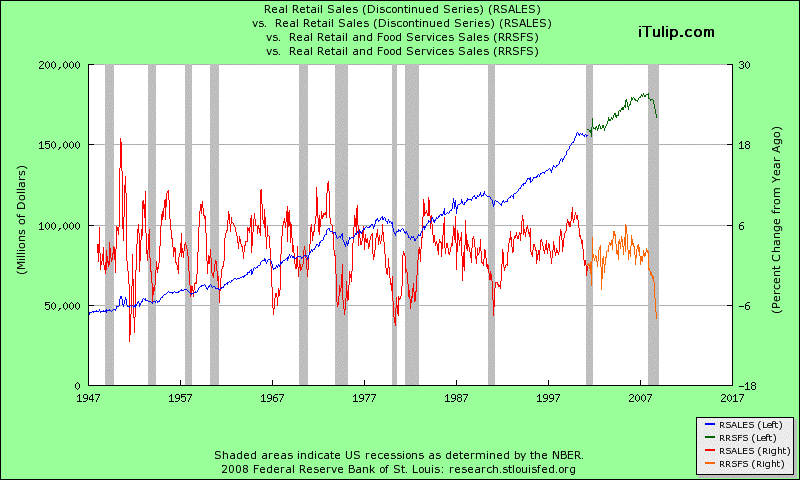Re: The US economy glides like a box of rocks. Don't stand under it - Eric Janszen
Raja, the assumption of gold confiscation is a huge one, but a possibility nonetheless.
If that is the case, then of course RE is better than gold (for the citizens of the country affected by such policy only). Heck, Nortel stock would be better than gold in that case.
In the event of hyperinflation and provided the rules of the game do not change, gold is likely to benefit much more than RE in my view.
In sum, I think that what you are trying to say is that there is some validity in diversification in the event of hyperinflation. That is a very valid and important point.
Having said that, not everything will be outlawed in the event of hyperinflation (unless something even worse happens, but lets not go there). As such, I think that other PMs (platinum, palladium, silver) and commodities in general (especially crude oil) should be considered seriously as they are likely to provide for higher returns than RE in this scenario of gold confiscation/hyperinflation.
Raja, the assumption of gold confiscation is a huge one, but a possibility nonetheless.
If that is the case, then of course RE is better than gold (for the citizens of the country affected by such policy only). Heck, Nortel stock would be better than gold in that case.
In the event of hyperinflation and provided the rules of the game do not change, gold is likely to benefit much more than RE in my view.
In sum, I think that what you are trying to say is that there is some validity in diversification in the event of hyperinflation. That is a very valid and important point.
Having said that, not everything will be outlawed in the event of hyperinflation (unless something even worse happens, but lets not go there). As such, I think that other PMs (platinum, palladium, silver) and commodities in general (especially crude oil) should be considered seriously as they are likely to provide for higher returns than RE in this scenario of gold confiscation/hyperinflation.
 I get to live on the rest of what I have left from selling that California property
I get to live on the rest of what I have left from selling that California property 
Comment